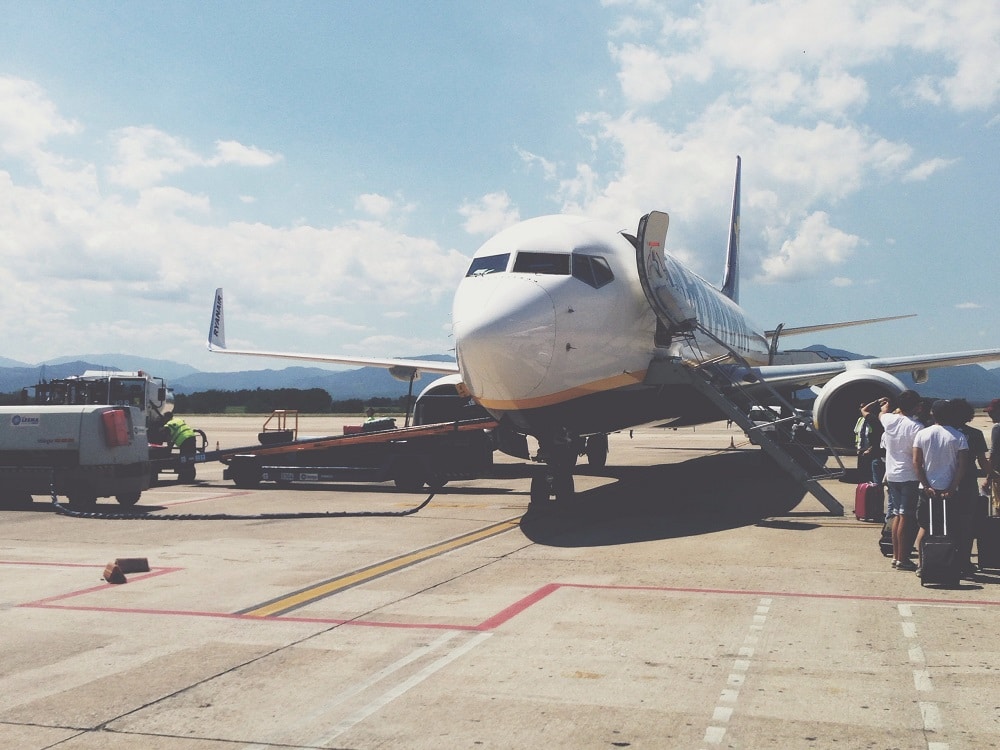![]()
![]()
Jasmine Birtles
28th Apr 2025
Reading Time: 6 minutes
Holidays are full of false economies, from travel insurance (or rather, the lack of) to currency exchange to mobile phone costs…we all do it and then kick ourselves afterwards! It is important you take care with smart spending on holiday, to ensure you aren’t overpaying or being ripped-off!
So take a deep breath, step back and think about your holiday of a lifetime. We have everything you need when it comes to smart spending for your holiday. With a bit of thought you won’t make false economies on holiday, particularly if you take up the tips below…
Saving on Flights
This is an area where you can make great savings if you time it right and do a bit of research. However, you can also get caught out with annoying extras and end up kicking yourself for being so cheap! In fact, a survey by Sainsbury’s Bank Travel Insurance found that 15% of people regretted buying cheap plane seats but then paying more for allocated seating. Men were more likely to regret this (17%) compared to women (14%) and 18-34 year olds more likely to regret this (23%) compared to 35-54 year olds (14%) or those aged 55+ (10%)
They also found that 11% of people regretted not buying enough baggage allowance for a flight and then paying for additional allowance at the airport. Men were more likely to regret this (13%) compared to women (8%) and 18-34 year olds more likely to regret this (20%) compared to 35-54 year olds (9%) or those aged 55+ (4%)
So here are tips for not paying extra:
- Weigh and measure your luggage if you’re taking a low-cost airline. It’s boring but they do mean it when they give weight and size restrictions.
- If you need a lot of luggage, pay the extra before or go with a non-budget airline. Quite often the ‘cheap’ airline with extra luggage and nice seating can end up being more expensive than the normal airline – particularly if you have to travel miles to get to their out-of-town airport too.
- Get clever with your packing. There are lots of ways you can condense your packing. Think about the clothes you can mix and match. Also buying a few temporary bits of toiletries at your destination this can be the cheapest and lightest way to travel.
- Take light luggage. You’d be amazed at how much wasted weight there is in many suitcases, especially those with wheels or expansion sides or fancy handles. Ultra-lightweight luggage like Gomatic Method, Samsonite, and Antler might be costly but will last a lifetime – and save you on excess luggage weight every time.
Book Direct With the Airline
We are all, rightly, excited by the flight comparison sites. There seem to be so many ways to get cheaper flights through them. Now that Google has got in on the act we have a huge choice of ways to compare.
However, these comparison sites don’t always give you the best deal.
You could be better off going direct to an airline’s own website. Feel free to use the comparison site to compare prices, but once you find a journey you like the look of, try checking out the airline’s own site to buy it. If your journey is complex you may be better doing it over the phone or in person in a travel agency.
Travel expert Simon Calder says: “I am constantly being contacted by people who have made false economies by going for what’s cheapest online. The number of complaints and requests for advice coming in to me would be halved if people didn’t book the cheapest flight they find on fare-comparison websites, only to discover they’re dealing with a firm in Sweden or Switzerland or Bangalore that really doesn’t have customer service at its heart.”


Save on Travel from the Airport
Don’t rely on finding a taxi when you arrive at the airport! While it seems like the easiest thing to do, it will almost guarantee a rip-off fare – and that’s if you can even get a taxi.
If you’re planning on a full-on sightseeing holiday, it could be more efficient to rent a car than get taxis everywhere. If your driving licence allows it, book a rental car (and if you’re going somewhere hot, make sure it has air con!). This will give you plenty of freedom while you’re away and means you know the set price of all travelling while you’re away.
If you don’t want to rent a car, book a taxi service in advance. Look online for good deals. Alternatively, you could look into train and bus routes from the airport. Booking in advance will slash your costs and guarantee you a seat, too. Remember that transport could be unreliable, so leave plenty of time when you’re returning to the airport at the end of your holiday! You could also ask your hotel if they have a recommended transfer service – some will even bundle in the price into your accommodation booking for an extra discount.
Saving on Hotels
You would think that using one of the many hotel comparison sites would get you the best deal around.
Not always so.
You may get a cheap deal but what regular travellers know is that when hotels see you’ve come through one of those sites, they can sometimes give you the worst rooms. You could find yourself overlooking the bins or with a room right next to the main reception. So your ‘deal’ isn’t nearly as good as you thought.
Having said that, it’s worth seeing what is available on these sites and then contacting hotels direct to see if you can get the same or a better price. If you book directly on the hotel’s website, or on the phone, you are likely to get a better room for your money.
Quite often you are also better off avoiding hotels altogether and using one of the peer-to-peer sites like Airbnb instead. However, be careful here. Airbnb can be good, particularly if you book well ahead, but in very busy and popular places like London and New York you can find yourself in a poky and noisy room with traffic, people, and even nightclubs right outside. Read the reviews very carefully before booking.
Saving on Insurance
Travelling abroad without insurance has to be the daftest of false economies, particularly if you’re in America. Smart spending on a holiday abroad certainly includes travel insurance.
Sadly, though, many of us still do it. Travel insurers do pay out, too. In 2023, there was an astonishing £511m in claims just from British travellers – with £291m of that being for medical expenses. The average non-medical claim was £518 (rising to £1830 for travellers aged 70-75), with medical expense claim averages of £1724, but this was as high as £25,000 for medical repatriation.
So, you can see how sensible it is to have some sort of travel insurance when you travel abroad.
Even if you are over 65 or you have pre-existing medical conditions you can still get reasonably-priced insurance. If you travel abroad more than once a year you would be better off getting a well-priced annual multi-trip policy. Check whether your bank account or home insurance offers travel cover, too.
Saving on Currency
Smart spending is imperative for your holiday when it comes to currencies. There are a few mantras to remember when it comes to travel money:
- Consider a mix of cash and card. It can be helpful to have a bit of cash when you’re abroad. Some places don’t take cards so, if only for safety, it’s a good idea to have some cash with you.
- If you take money out of an ATM abroad, go for the ‘local currency’ option as it tends to be better value.
- Don’t exchange at the airport. The currency converters at airports always have expensive rates. You could book it beforehand online and then pick it up at the airport, but don’t leave it until the last minute and change your pounds into foreign money just before you get on the plane. You will lose out.
- Consider a prepaid card. These can be a good way of spending abroad as you lock in the exchange rate before you go and if you lose the card you can stop it immediately.
- Use a comparison site a few days before you leave so that you can have the money delivered if you need it.
Sainsbury’s Bank has a handy Online Rate Calculator to work out how much foreign currency you’ll get for your holiday spending money. You can check rates and place your order in just a few, simple steps.
You can also use a multicurrency card, like Revolut. This is also a good way to protect your finances if your card is lost or stolen, because you can transfer cash to the card without leaving access wide open to your bank account.
Disclaimer: MoneyMagpie is not a licensed financial advisor and therefore information found here including opinions, commentary, suggestions or strategies are for informational, entertainment or educational purposes only. This should not be considered as financial advice. Anyone thinking of investing should conduct their own due diligence

